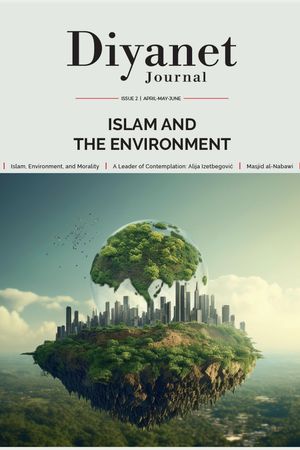The Holy Qur’an beautifully expresses this interconnectedness with the following words, “It is Allah Who created the heavens and the earth and sends down rain from the sky, causing fruits to grow as a provision for you. He has subjected the ships for your service, sailing through the sea by His command, and has subjected the rivers for you. He has also subjected for you the sun and the moon, both constantly orbiting, and has subjected the day and night for you.” (Ibrahim, 14:32-33) These verses emphasize that human beings are integral to the world of existence. It also highlights that the environment is an area of responsibility and trust for human beings.
Allah the Almighty has explicitly prohibited people to squander the blessings that He has placed at their disposal and entrusted to their care. He has declared that there will be a reckoning for every blessing given to them. Our Prophet (saw) encouraged Muslims to work until their last breath and reminded them of their responsibility towards nature by saying, “If the Final Hour comes while you have a shoot of a plant in your hands and it is possible to plant it before the Hour comes, you should plant it.” (Bukhari, Adab al-Mufrad, 168) This statement underscores the utmost significance that Islam attaches to the harmonious relationship between humanity and the environment.
We are delighted to share with you, our valued readers, the latest edition of Diyanet Journal. In this issue, we delve into the profound relationship between Islam and the environment. Within the pages of this edition of Diyanet Journal, we have thoughtfully curated a collection of insightful contributions on the subject of “Islam and the Environment”. Prof. Dr. Huriye Martı explores the vital topic of “Islam, Environment, and Ethics” highlighting the profound impact of people’s relationship with the environment not only on their life in this world but also on their life in the Hereafter. In our column, “Questions on My Mind”, Prof. Dr. Cagfer Karadas presents an engaging paper entitled “Do Religion and Science Conflict?” offering valuable perspectives on this intriguing subject. Moreover, in our “Revert Stories” column, Jenny Molendyk Divleli shares her inspiring journey of embracing Islam, offers advice for those curious about Islam not to hesitate to ask further questions, and speaks of her impactful projects. Finally, in our interview section, we have the privilege of hosting Prof. Dr. Sadettin Okten, who provides valuable insight into the relationship between the environment, humanity, and civilization.
As Diyanet Journal, we present this new issue wholeheartedly to you, our esteemed readers. We sincerely hope that you derive immense joy and knowledge from reading its content.
We hope to see you in our next issue...
Dr. Lamia LEVENT ABUL
 Next
Next
